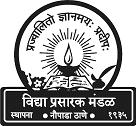GROWING
DEMAND FOR PGD FOR CANCER PREDISPOSITION:
Inherited
cancer predisposition is rare, however preimplantation genetic
diagnosis (PGD) for this group of disorders is steadily increasing.Â
Unlike
other common indications for PGD such as cystic fibrosis, PGD for cancer
predisposition avoids the inheritance of a very high susceptibility
to
developing cancer rather than inheritance of the disease itself.
 Most cancers arise due to sporadic events (mainly environmental
risks)
and few individuals have more than one primary tumour in their lifetime.
However, individuals with an inherited susceptibility are prone to
developing more than one cancer in multiple organs, a risk that remains
throughout their lives. In spite of clinical surveillance, surgery and
other
treatments, morbidity and mortality due the inherited mutation can be
high.
 For example, patients with inherited mutations in the APC gene
can
develop cancers of the colon, small intestine, thyroid, skin and brain.
Therefore, even after prophylactic removal of the large bowel these
patients
require life long clinical surveillance for the detection of cancers
in
other parts of the body. One of the primary causes of death in individuals
with inherited APC mutations following colorectal surgery is the occurrence
of benign tumours known as desmoids because the anatomical location
of these
tumours can make surgical removal difficult.
 The age of onset for inherited cancer is generally much earlier
than in
sporadic cases, but the penetrance of these disorders can be variable
as not
all individuals with an inherited mutation in a cancer predisposing
gene
develop cancer. Mutations in the APC gene result in an almost 100 per
cent
risk of developing colorectal cancer if prophylactic surgery is not
carried
out, however inherited BRCA1 mutations confer a 60-65 per cent risk
of
breast cancer in women.
 By following up families with inherited cancer, better knowledge
of the
spectrum of tumours and the clinical complications that can arise has
led to
the creation of a number of guidelines for the clinical management of
these
patients. Once the causative germline mutation is identified in a family
member with inherited cancer, other family members need genetic counselling
to prepare for the stress of genetic testing. Even if cancer treatment
is
not required, asymptomatic mutation carriers undergo regular and often
invasive clinical screening as well as prophylactic surgery in some
cases.
It is surprising that in spite of almost all types of inherited cancer
showing autosomal dominant inheritance (where 50 per cent of offspring
will
have high genetic susceptibility to developing cancer), counselling
on
reproduction is rarely included in guidelines on clinical management.
 Reproductive decision making for cancer predisposition is complex.
This
is because the extent of clinical manifestation due to a germline mutation
is largely unpredictable and in some cases the availability of clinical
surveillance for the early detection of tumours results in a favourable
prognosis following treatment. For some couples termination of an
established pregnancy because of cancer susceptibility is inappropriate
yet
passing on this genetic burden equally is not an acceptable option.
PGD
gives individuals with known germline mutations an opportunity to avoid
passing on the inherited cancer risk to their children without the need
to
consider the termination of pregnancies.
 In PGD genetic testing is carried out on embryos from the couple
created
by IVF. Only embryos that do not carry the inherited mutation are
transferred back to the mother with the aim of establishing a pregnancy.
In
practical terms, children born following PGD for cancer predisposition
avoid
the need to prepare for a genetic test, where a positive result would
have a
significant impact throughout their lives whether or not they were to
ever
develop cancer.
 In our experience, couples requesting PGD for cancer predisposition
want
to remove the burden of having an inherited mutation in these genes
even if
they themselves have not had clinical screening or cancer treatment,
for
example male carriers of BRCA1 mutations. We have carried out a total
of 11
cycles of PGD for eight couples with inherited mutations in four different
cancer predisposing genes. Three of these couples have had the birth
of a
healthy child following PGD to avoid retinoblastoma, neurofibromatosis
type
1 and familial adenomatous polyposis and two others have ongoing pregnancies
(retinoblastoma and inherited breast/ovarian cancer due to BRCA1).
 PGD is therefore a highly successful option for couples with
cancer
predisposition as the live birth /pregnancy per cycle of PGD is 45.5
per
cent (5/11) and per couple it is 62.5 per cent (5/8). The HFEA has licensed
PGD for other cancer predispositions including von Hippel Lindau syndrome,
multiple endocrine neoplasia type I and neurofibromatosis type 2. Worldwide,
PGD has been carried out for inherited mutations in a number of different
genes including MSH2, MLH1, RET, BRCA2, TSC2, and CDH1.(1) We are working
towards developing PGD for inherited mutations in these genes so that
more
couples in the UK can be offered PGD as a reproductive option.
(1)
The cancer predisposing genes mentioned in this article are listed below
together with the names of the disorders caused by inherited mutations
in
these genes. For each disorder some of the organs that are susceptible
to
developing tumours are given.
Gene
/ Disorder / Susceptible organs
APC / Familal adenomatous polyposis (FAP / Colon, small bowel, thyroid,
skin, brain
BRCA1, BRCA2 / Early onset Breast/ovarian cancer / Breast, ovary
CDH1 / Hereditary diffuse gastric cancer / Stomach
MEN1, RET / Multiple endocrine neoplasia types 1&2 / Pancreas, adrenal
glands, thyroid
MSH2, MLH1 / Lynch syndrome (HNPCC / Colon, endometrium, ovary, small
intestine, brain, skin
NF1, NF2 / Neurofibromatosis types 1&2 / Brain, peripheral nerves
RB1 / Inherited retinoblastoma / Eye, bone, brain, blood
TSC2 / Tuberous sclerosis type 2 / Brain, kidneys, heart, eyes, lung,
skin
VHL / von Hippel Lindau syndrome / Kidney, adrenal glands, CNS
-
Sioban SenGupta[1], Joyce Harper[1], Karen Fordham[1], Paul Serhal[2]
and
Joy Delhanty[1],
[1] UCL Centre for PGD, Institute for Womenâ ôs Health, University
College
London
[2]>www.uclcentreforpgd.org
[2] The Assisted Conception Unit, UCH, London,
